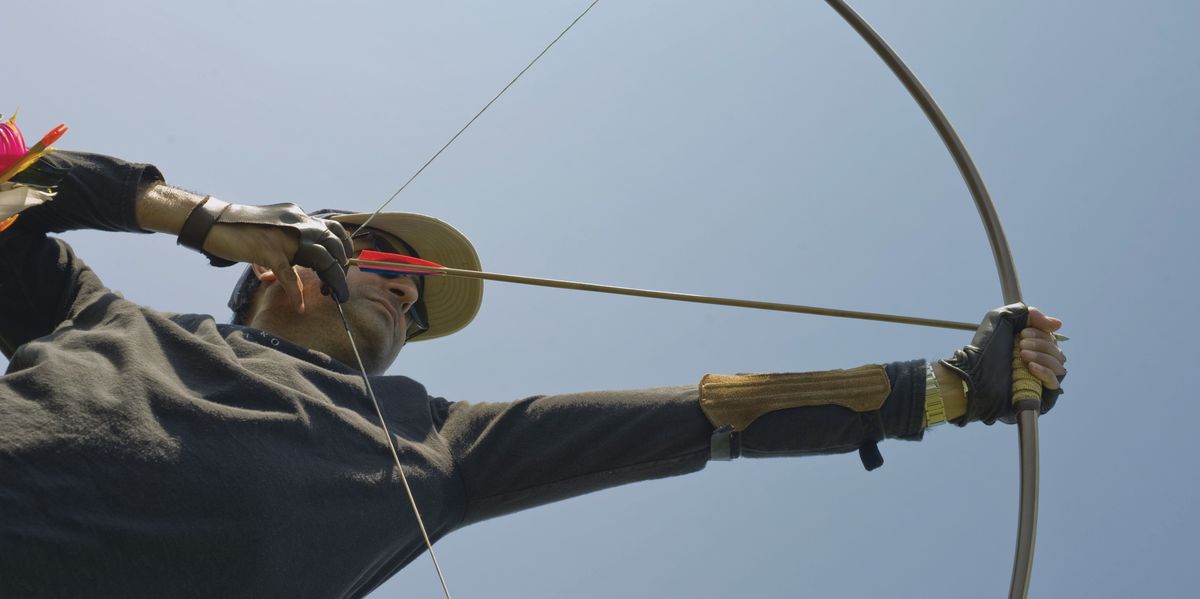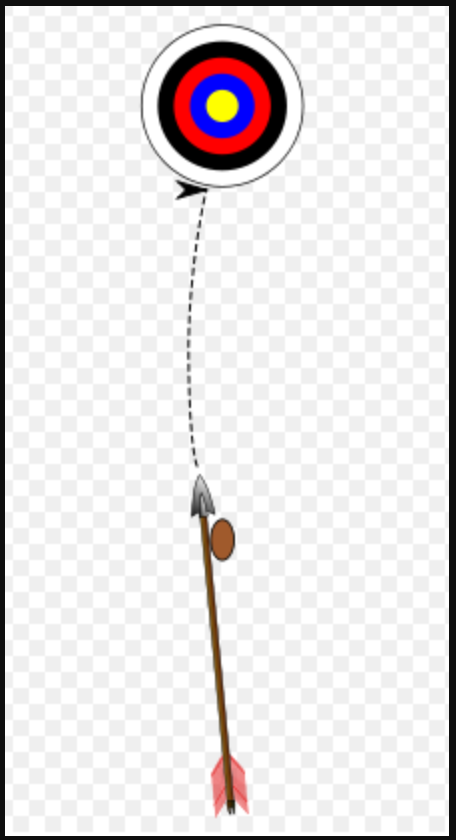The Physics of Archery
Homepage

https://www.popularmechanics.com/adventure/outdoors/a32826206/how-to-make-bow-and-arrow/
and arrows, adopting archery nearly 5,000 years ago for hunting and warfare.
(worldarchery.org)
Archery is a perfect example for
projectile motion. An archer has a launch angle
and an initial
velocity of their arrow which travels a certain distance
dependent
on those components.
The arrow is considered a projectile because after the
arrow
is launched from the
bow the only force acting on the arrow is by gravity.
(Though
really in real life;
gravity, wind, and air resistance can all affect the path
of an
arrow.) To help with
these other forces after the arrow takes flight they have
to
components. The
arrowhead or tip and the fletching or feathers. They help
to
stabilize the arrow.
The Process of Energy in Shooting a
Bow.
In shooting a bow there are three main
forces of energy. The law of conservation
of energy means
there is no energy lost but rather it only changes form.
Making
the subsumption that
the process of shooting a bow is a closed system there is
only
three forms of
energy. First, as an archer pulls the arrow back in the
bow their bow,
their muscles use
chemical energy. As they pull the bow back to its full
draw length
the energy is
transferred to fully to potential energy. Once the arrow
releases the
potential energy is
converted into kinetic energy.
The Archer’s Paradox.

https://www.scienceabc.com/sports/draw-back-bow-science-archery.html
The image above shows the archer’s paradox.
The archer’s paradox is when a bowman aims
their bow straight at their target. But how
does the arrow
hit the target if the bow shaft is in the way of the true
path of the arrow?
The arrow flexes! As seen in
the image the arrow flexes around the bow shaft and follows
the path to the target. The
arrow follows the straight path from the bow string to the
limb
but really flexes around it.
Though archery can be very complex the
simplification of projectile motion makes it very
easy to your mark every time!
Homepage